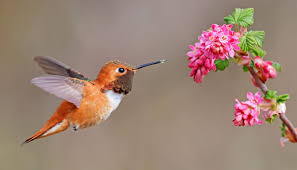Note: If you wish to receive, via e-mail, (1) my weekly newsletter or (2) daily copies of these posts, write to me at rrbates1951@gmail.com. Comments may also be sent to this address. I promise not to share your e-mail with anyone. To unsubscribe, write here as well.
Easter Sunday
Since beginning this blog, I have often shared a Mary Oliver poem on Easter Sunday. I do so again today since, in “Messenger,” she grapples with the Jesus miracle that we celebrate today and that is the most difficult to accept.
While I don’t myself entirely believe that Jesus came back as a living, breathing human being—one who (so Luke reports) made multiple appearances, such as walking through locked doors, suddenly vanishing, participating in a meal, and presenting his body to be touched—I do believe that he articulated a deep and transcendent truth about the nature of being. It is this truth that Oliver is getting at when she makes reference to living forever.
Oliver so loves the world that, when she fully enters into creation, it no longer matters that she is aging. Her “body clothes,” like her boots and her coat, may be wearing thin, but her connection with the moth and the wren and “the sleepy dug-up clam” means that she transcends self to become part of something larger.
Oliver is able to reach beyond the drama of life and death because, like sunflowers and hummingbirds, she is a seeker of sweetness. She offers up thanks that she has a mind, a heart, and a body through which she can experience the world, and she offers up thanks that she can voice her gratitude. “Songs of songs of thankfulness and praise, Jesus, Lord, to thee we raise,” goes the old Victorian hymn, and Oliver’s poem works as such a hymn.
For a creative writer, voicing words of thankfulness and praise is particularly important. In his novel All the Pretty Horses, Cormac McCarthy writes of “that resonance which is the world itself and which cannot be spoken but only praised.”
In titling her poem “Messenger,” perhaps Oliver sees herself as a kind of John the Baptist, telling us that divinity is at hand. In yielding herself to the perfect whole, to borrow from Ralph Waldo Emerson’s poem “Each and All,” she moves beyond the self that can die and connects with a creation that continues on. Like Blake, she can
See a world in a grain of sand
And a heaven in a wild flower,
Hold infinity in the palm of your hand
And eternity in an hour.
Or as an enchanted Colin exclaims upon first entering the Secret Garden and seeing the magic of green and growing things, “Mary! Dickon! I shall get well! And I shall live forever and ever and ever!”
Here’s Oliver’s poem:
Messenger
by Mary Oliver
My work is loving the world.
Here the sunflowers, there the hummingbird
equal seekers of sweetness.
Here the quickening yeast; there the blue plums.
Here the clam deep in the speckled sand.
Are my boots old? Is my coat torn?
Am I no longer young, and still not half-perfect? Let me
keep my mind on what matters,
which is my work,
which is mostly standing still and learning to be
astonished.
The phoebe, the delphinium.
The sheep in the pasture, and the pasture.
Which is mostly rejoicing, since all the ingredients are here,
which is gratitude, to be given a mind and a heart
And these body-clothes,
A mouth with which to give shouts of joy
To the moth and the wren, to the sleepy dug-up clam,
Telling them all, over and over,
how it is that we live forever.
Wordsworth sums up the experience in Tintern Abbey:
And I have felt
A presence that disturbs me with the joy
Of elevated thoughts; a sense sublime
Of something far more deeply interfused,
Whose dwelling is the light of setting suns,
And the round ocean and the living air,
And the blue sky, and in the mind of man:
A motion and a spirit, that impels
All thinking things, all objects of all thought,
And rolls through all things.
It is this divine presence that Jesus sought to put us in touch with. He knew that, when we open ourselves to it, everything else falls away. The stone is rolled back and we see into the life of things.
At such moments, shouts of joy. Happy Easter.


